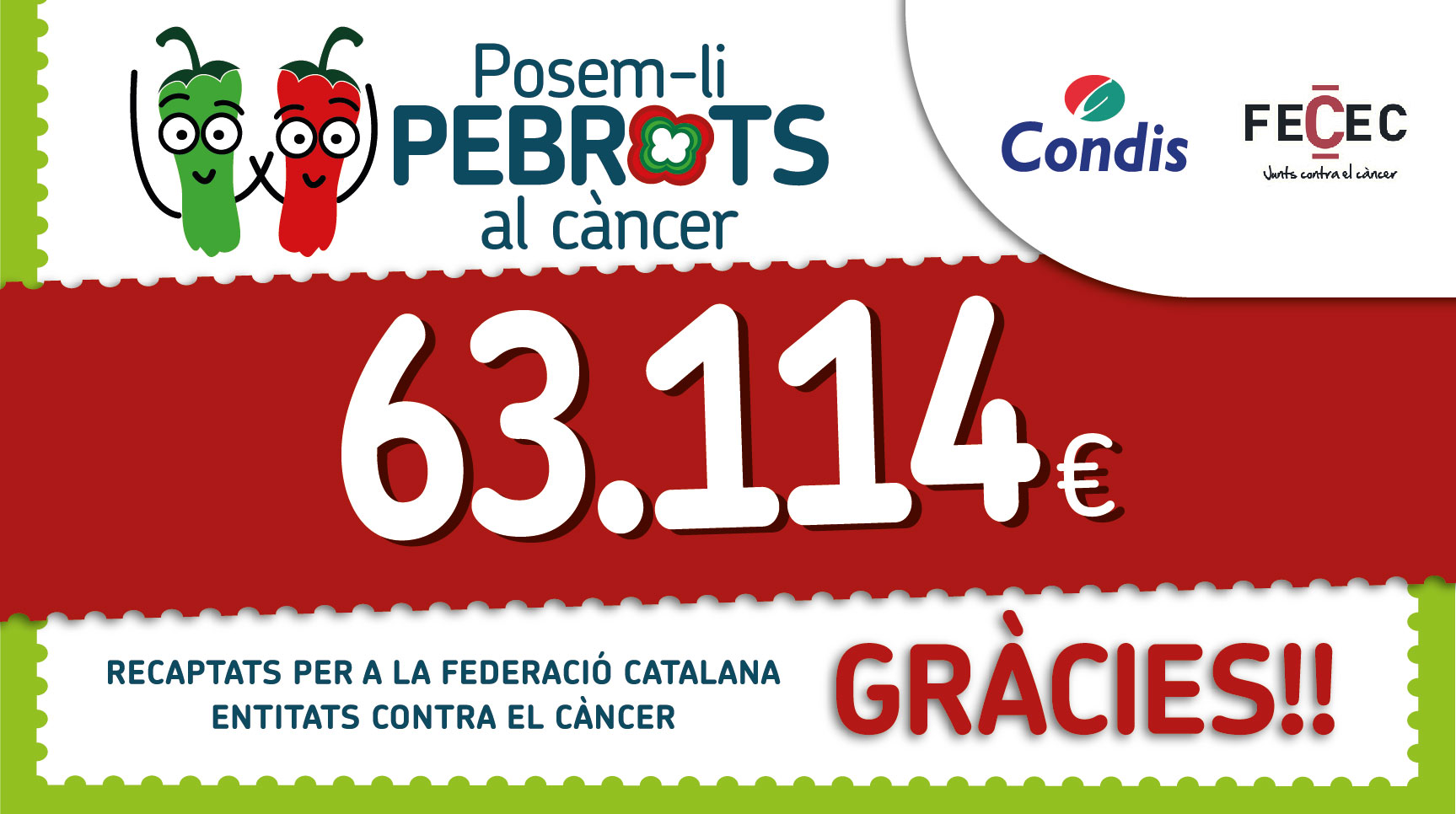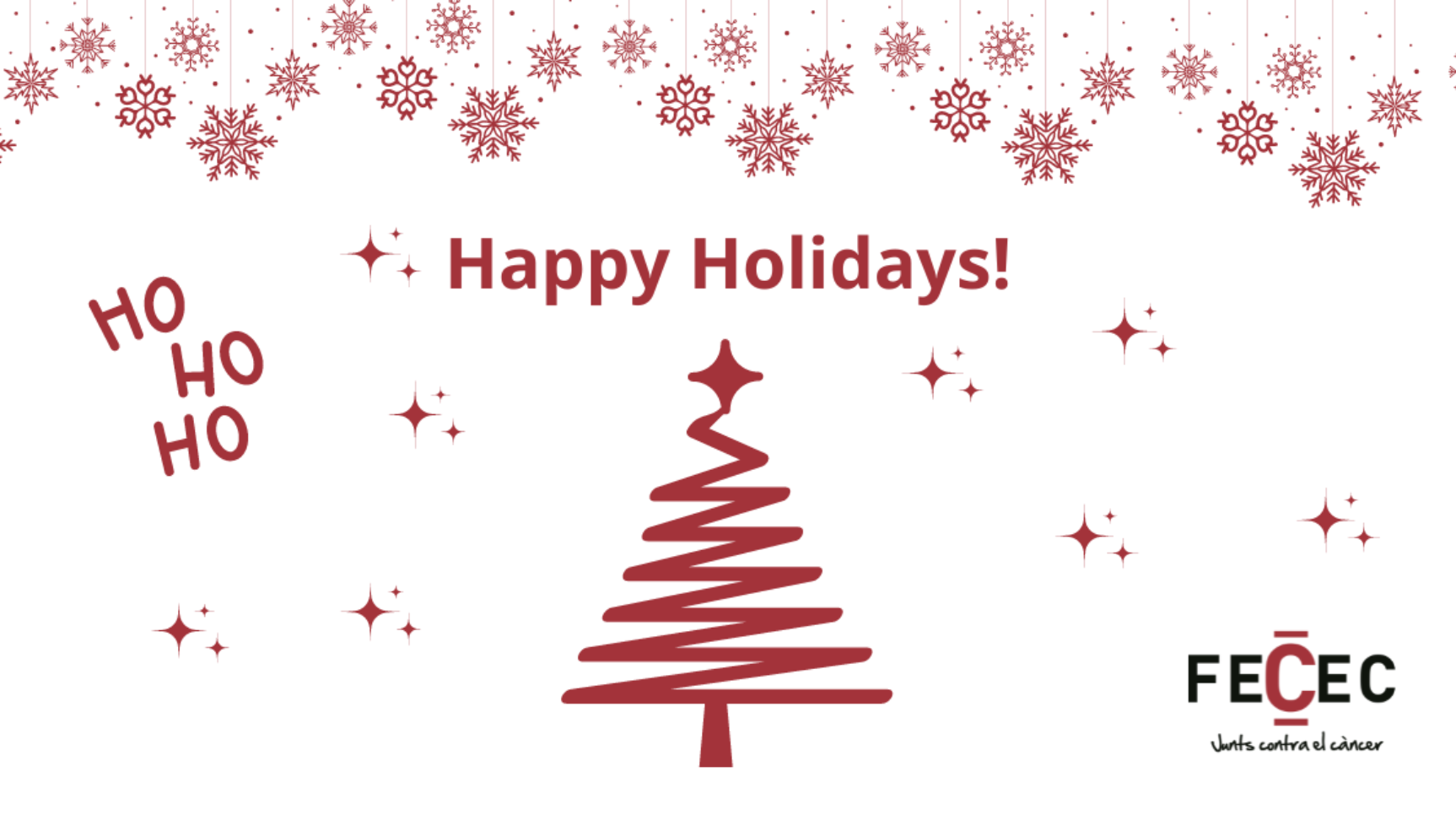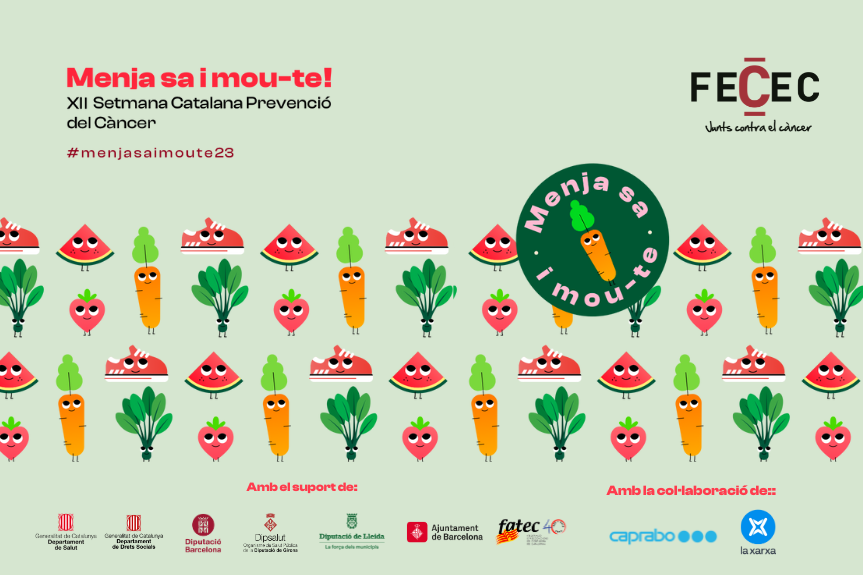Home >
News

The FECEC and Condis campaign ‘Posem-li Pebrots al Càncer’ raises 63,114 euros
The Catalan Federation Against Cancer (FECEC) and the Condis supermarket chain have raised a total of 63,114 euros as part of the charity initiative ‘Posem-li Pebrots al Càncer’, which aims to support patients oncology and spread the support work carried out by the entities affiliated to the FECEC to improve the quality of life of people with cancer and their families.

The FECEC, Junts contra el Càncer wish you a Happy Holidays
The Catalan Federation Against Cancer wish you a Merry Christmas and a healthy 2024. Together, we’ll continue to support cancer patients and their families with enthusiasm, strength and commitment.

The FECEC, Junts contra el Càncer organizes the event ‘Celebrate life after cancer’
The Catalan Federation of Entities against Cancer (FECEC) celebrates on November 25 at the Barcelona Social Hub the day "Celebrate life after cancer" to raise awareness and make visible the difficulties that can be encountered by people who overcome or chronic a cancer .

The FECEC, Junts contra el Càncer organizes the XII Cancer Prevention Catalan Week
The Catalan Federation of Cancer Organizations (FECEC) is organizing a new edition, in this case the XII, of the Cancer Prevention Catalan Week (SECAPC) from September 29 to October 8.

Recoup the Dialogue “What do you need to know about breast reconstruction?” on our YouTube channel
On October 19, 2022, World Breast Cancer Day, we held a webinar within the cycle "Dialogues FECEC: from before to after cancer" dedicated to the different surgeries for breast cancer. Watch it on our YouTube channel.

The ‘Posem-li pebrots al cáncer’ campaign raises 57,174 euros for support programs for oncological patients
The Catalan Federation of Entities Against Cancer (FECEC) have raised a total of 57,174 euros as part of the "Posem-li pebrots al Càncer" initiative organized together with Condis supermarkets and which aims to show solidarity with cancer patients and to disseminate, as well, the task of accompaniment and support carried out by the entities affiliated to the FECEC.

 CAT
CAT ES
ES